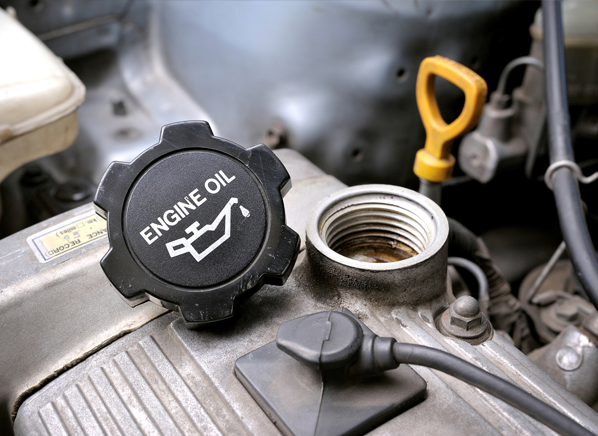When it comes to car maintenance, it can be easy to focus on big-ticket issues and forget about the small stuff. More likely than not, though, it will be the latter that, when ignored, turns into the costly problems.
So save yourself the headache down the road. Because when it comes to car maintenance, you do want to sweat the small stuff. Here are nine basic car maintenance tasks you don’t want to overlook.
1. Check Your Oil
Frequently checking your oil level and color can help ensure your car sticks around for the long haul. By using either a dipstick or electronic gauge, you can quickly determine if your oil levels are low or dirty.
Experts say both are indicators that it’s time for an oil change or to address a bigger issue with your engine. With that in mind, make sure to consult your owner’s manual to determine the frequency with which you should change your oil.
2. Track Your Tires’ Tread Depth
Driving on a flat or under-inflated tire can do serious damage to your vehicle — and no one wants that. Knowing the dangers of a potential blowout, make sure to regularly keep track of your tires’ tread depth.
Case in point: Driving on a bald tire, or one with less than 2/32nds of an inch of tread, would require you to hit the brakes much faster than if you were driving on a new set of tires, as low tread depth necessitates a significantly longer stopping distance.
Check your tires’ tread depth with a tread gauge or by using the “penny test,” where you insert a penny face down into the tread. If you can see the top of Lincoln’s head, then you know the tire is bald.
3. Keep Your Tires Properly Inflated
While you’re checking your tread, make sure you tires are also properly inflated. Tire inflation can affect the smoothness of the ride, gas efficiency and steering. Consult your owner’s manual to determine the correct inflation pressure and make sure to check your tires’ air pressure at least once a week before driving.
4. Check Your Fluids
Maintaining proper fluids in the summer isn’t just about consuming plenty of H2O. You’ll also want to routinely check your car’s antifreeze, power steering, coolant and windshield wiper fluids; after all, no one wants to break down on the side of the road in the dead of summer.
With that in mind, learn about the proper fluid levels for your ride and either refill any that are depleting or have them refilled by a professional, as driving on low fluids can create a leak.
5. Change Your Air Filter
When your car’s air filter is corroded with dust and grime, you’re putting unnecessary stress on your engine and reducing your car’s overall fuel efficiency. Gradually, you’ll notice your car start to drive rough. Thus, make sure to change out your air filter every 15,000 and 30,000 miles, depending on the make and model of your car.
6. Clean Your Battery
Every several thousand miles, you’ll also want to check your battery and clean any buildup on the contacts with a battery cleaning brush. This is particularly important, as dirty terminals can cause your car not to start and decrease the lifespan of your car’s battery.
7. Inspect Your Belts
Back to your fluid levels for a second. When checking your oil or other fluids, take the time to also inspect your timing and serpentine belts for looseness or damage. A failed belt will cause a breakdown, so you’ll want to be on top of any potential problem.
8. Check and Change Your Spark Plugs
Driving on dirty or worn spark plugs can make your engine work overtime and inefficiently. With that in mind, check your spark plugs regularly for build-up and either replace them or have them replaced by a professional.
Get on Top of These Issues
Neglecting to monitor some of the more small-ticket items on your car maintenance list is no small potatoes; after all, staying on top of these basic car maintenance tasks will save you from experiencing any bigger issues down the road.
Thus, by regularly checking your oil, tracking your tire tread, checking your fluid levels, changing your engine air filter amongst many other to-dos, you’ll own and drive a car that will no doubt have a long lifespan.

